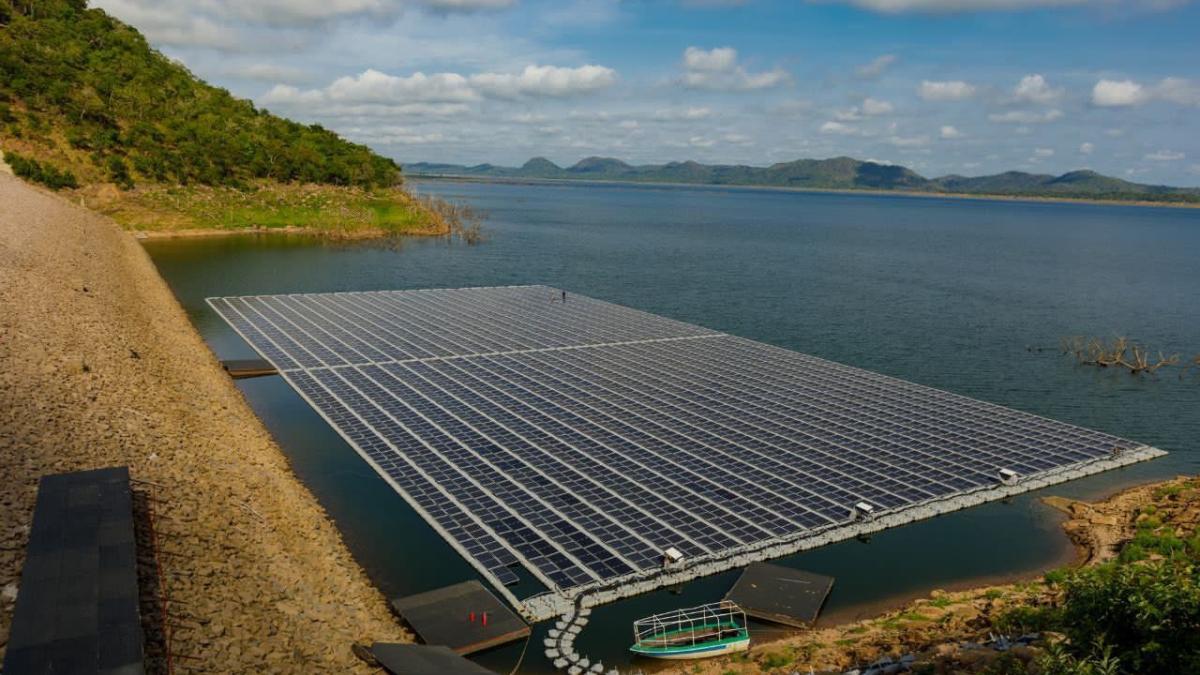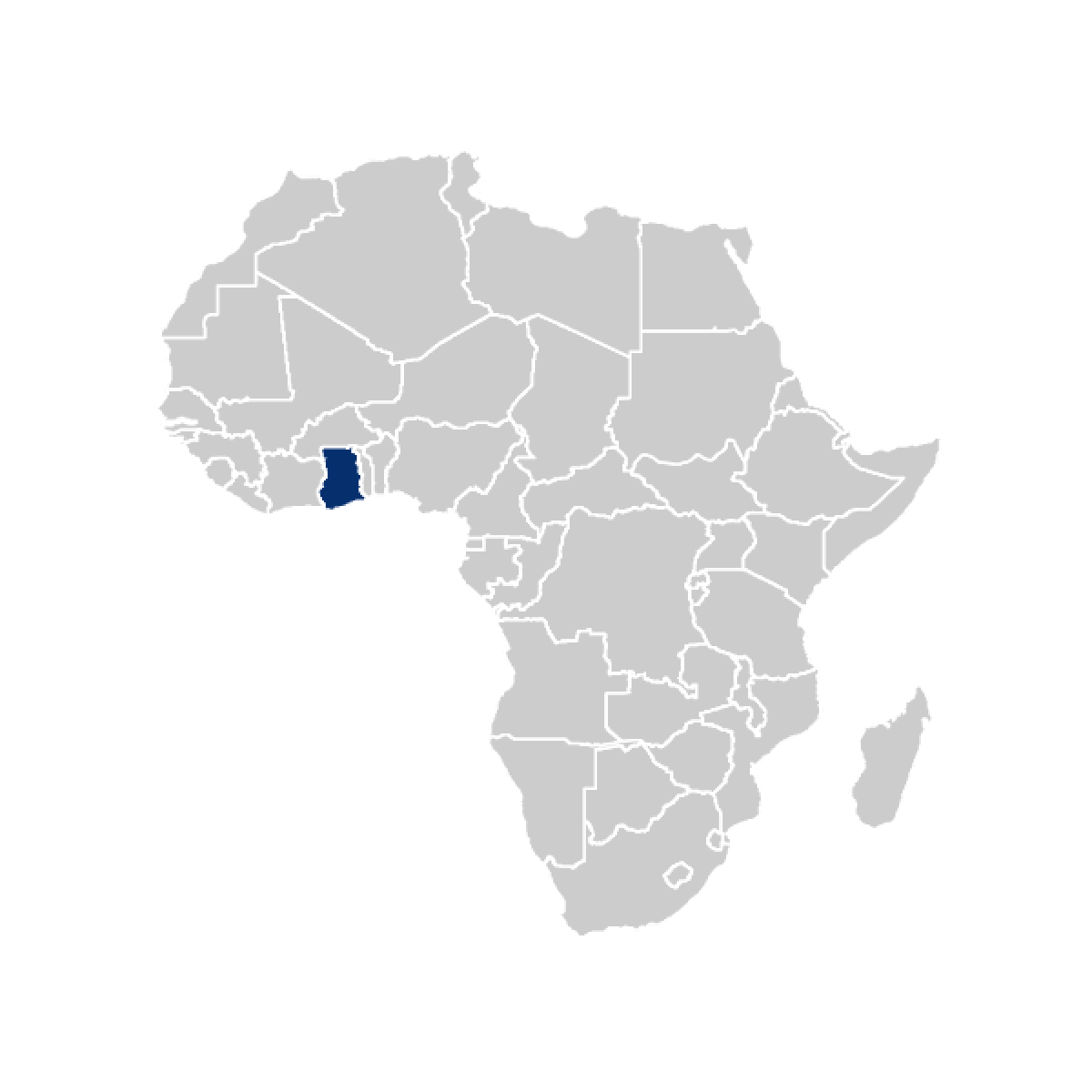GHANA
POWER AFRICA FACT SHEET
Power Africa has supported the development of electricity generation projects in Ghana. In addition, various firms have received U.S. Embassy support to move transactions forward. The page below shows Power Africa's involvement and lists Power Africa’s financially closed transactions in the country, some of which are already online and generating critical electricity supply for the people of Ghana.

Power Africa/Samuel Edem Wunu
POWER AFRICA SUCCESS STORIES IN GHANA
Securing a Sustainable Energy Future for Ghana, One Public Institution at a Time

Achimota Hospital in Accra, Ghana, is leading the way in energy efficiency and conservation. With support from Power Africa and Ghana’s Energy Commission, the hospital is implementing sustainable practices that save costs and reduce emissions. Learn about the impact of these efforts and how they’re setting a precedent for public institutions across Ghana on our blog.
Digitalizing Decision-making to Increase Energy Access in Ghana

Ministry of Energy Ghana
Power Africa worked with the Ministry of Energy to develop a data-driven inventory management system (IMS) that supports the effective management of components and materials for electrification projects. This digitized stock-taking process replaced Ghana’s decentralized and manual inventory system, and is providing decisionmakers with more accurate and real-time access to the distribution of energy equipment. READ more on our blog
West Africa's First Solar-Hydro Hybrid Plant Operational in Ghana

Bui Power Authority
In line with Ghana’s mission to promote access to reliable, clean, and affordable electricity, Power Africa assisted the Bui Power Authority (BPA) to operationalize the first 50 megawatt (MW) phase of its 250 MW solar-hydro hybrid project. This first 50 MW plant resulted in the doubling of Ghana’s grid-connected solar energy and is expected to cut greenhouse gas emissions by more than 47,000 tons per year. READ more on our blog

Canva/Kwame Kwegyir-Addo
POWER AFRICA FINANCIALLY CLOSED TRANSACTIONS IN GHANA
Updated: May 2, 2019
Kpone Independent Power Plant (Natural Gas – 350MW)
Financial Close Date: 12/23/2014
Commercial Operations Date: TBD
Estimated Project Cost: $900M
Overview: Cenpower Generation Company Limited is a Special Project Vehicle (SPV) created to develop the Kpone Independent Power Plant (Kpone) in the Tema industrial zone. The 350MW CenPower Kpone Gas project in Ghana has turbines installed by General Electric. Kpone will account for approximately 10 percent of Ghana’s total installed capacity and approximately 15 percent of its available thermal generation capacity. As a Combined Cycle Gas Turbine plant, it will be amongst Ghana’s most fuel-efficient thermal power stations and once in production, the power plant will become a critical base-load component in meeting Ghana’s growing electricity demand.As the lead USG agency on this project, USAID provided transaction support to the Electricity Company of Ghana. Several Power Africa partners were involved in financing the deal.
Amandi Energy (Natural Gas – 200MW)
Financial Close Date: 12/14/2016
Commercial Operations Date: 4/30/2019
Estimated Project Cost: $552M
GPS Coordinates: Lon / °-1.666 Lat / °4.982 Elev / m16
Overview: The Amandi Power project is demonstrative of Power Africa’s partnership-driven approach, with numerous Power Africa private sector partners involved. Power Africa partners and non-partners provided commercial debt, with Aldwych International and the Texas-based, Endeavor Energy as project sponsors. A U.S. based company currently serves as the engineering, procurement and construction provider for the contract; and private equity funds provide equity backing to the sponsors. USAID played a role in convening the private sector stakeholders and being the coordinating interface with the Government of Ghana. The US Government's Overseas Private Investment Corporation provided debt and insurance, and the Millenium Challenge Corporation through a $498 million Ghana Power Compact is transforming Ghana's power sector and crowding in private capital.

